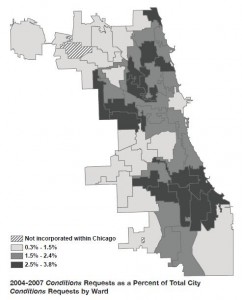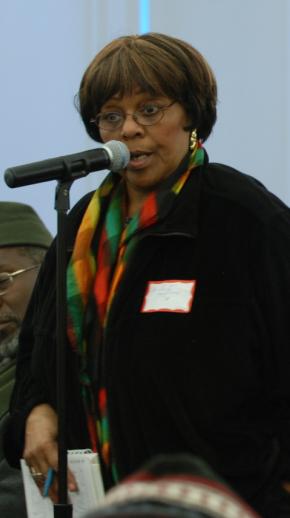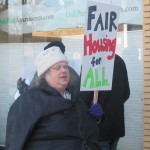 On Thursday, December 13, 2012, more than 40 tenants and advocates from across Cook County picketed Oak Park Apartments’ headquarters on Chicago Avenue to protest the company’s refusal to accept Housing Choice Vouchers. While it may be legal in Cook County suburbs to refuse to rent to Housing Choice Voucher holders, it is not morally right.
On Thursday, December 13, 2012, more than 40 tenants and advocates from across Cook County picketed Oak Park Apartments’ headquarters on Chicago Avenue to protest the company’s refusal to accept Housing Choice Vouchers. While it may be legal in Cook County suburbs to refuse to rent to Housing Choice Voucher holders, it is not morally right.
According to one Housing Choice Voucher holder that lives in Oak Park, who wanted to remain anonymous out of fear of retaliation, “I have been denied occupancy in countless properties including Oak Park Apartments, just because I have a voucher. This is just not fair. I pay my rent yet I cannot live in certain buildings!”
Adam Ballard of Access Living and a voucher holder stated, “Many people with disabilities rely on vouchers for their housing. We want Oak Park Apartments and Cook County to end this legalized discrimination. All we are asking is to be treated like anyone else.”
Currently, the City of Chicago forbids landlords to discriminate against voucher holders. There is no such prohibition in Cook County suburbs. Cook County Commissioner Jesus Garcia, is trying to change that and has introduced legislation that would amend the County’s Human Rights Ordinance to make it illegal to discriminate against Housing Choice Voucher holders.
After the picket, tenants went to Cook County Commissioner Earlene Collins’ office. The group wanted to know why Commissioner Collins had not signed on as a supporter of the amendment. While the Commissioner was away at the time, the group was promised a meeting with the Commissioner.
According to Shirley Johnson, Organizing Director of the Metropolitan Tenants Organization, “Section 8, Housing Choice Voucher Holders are stereotyped and therefore often forced to live in high crime, low opportunity communities. The recent presidential election proved that it is a “new America” where diversity rules. A rental policy that refuses to rent to voucher holders is blatant discrimination and should be outlawed, especially in today’s modern society.”
Oak Park Apartments claims to offer “the largest selection of well-maintained apartments perfect for those who want to experience Oak Park’s architectural character, its excellent school system and vibrant and diverse village feel.” However, they intentionally exclude Housing Choice Voucher holders from these opportunities.
Access Living, Progress Center and the Metropolitan Tenants Organization organized the protest. The groups promised to return. According to Adam Ballard of Access Living, “The fight for our rights has just begun.”

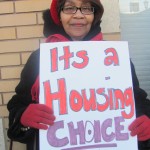








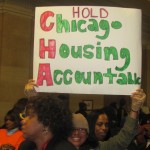

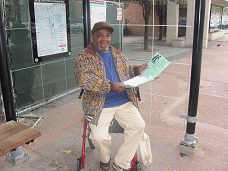

 In January of 2011, tenants from a senior building at 353 E. 53rd Street called MTO complaining of repair problems in their building. The hotline counselor suggested
In January of 2011, tenants from a senior building at 353 E. 53rd Street called MTO complaining of repair problems in their building. The hotline counselor suggested 
